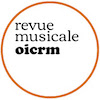-
Vol. 10 nº 1, juin 2023
This article is about the use of phonograph records (and associated technologies, such as the jukebox or turntable) as objects of narrative interconnection in a corpus of low-budget American films of the 1940s. Records, as we shall see, often function in these films as tokens of interconnection which cross the boundaries of gender and race in ways both stereotypical and unexpected. The spinning record, in films of this period, very often served to initiate a film’s movement between spaces whose relationship to each other might be one of intimate familiarity or of radical social alterity. Across several films, as I hope to show, records play pivotal roles in the staging and differentiation of identities. Even in the fictional worlds dominated by men in these films, it is very often women who select, handle, and play records. As objects that sometimes trigger entry into filmic spaces disconnected from those of a film’s main narrative, records can authorize glimpses of racialized populations who otherwise play no role in a film’s dramatic action.
ISSN : 2368-7061
© 2025 OICRM / Tous droits réservés
